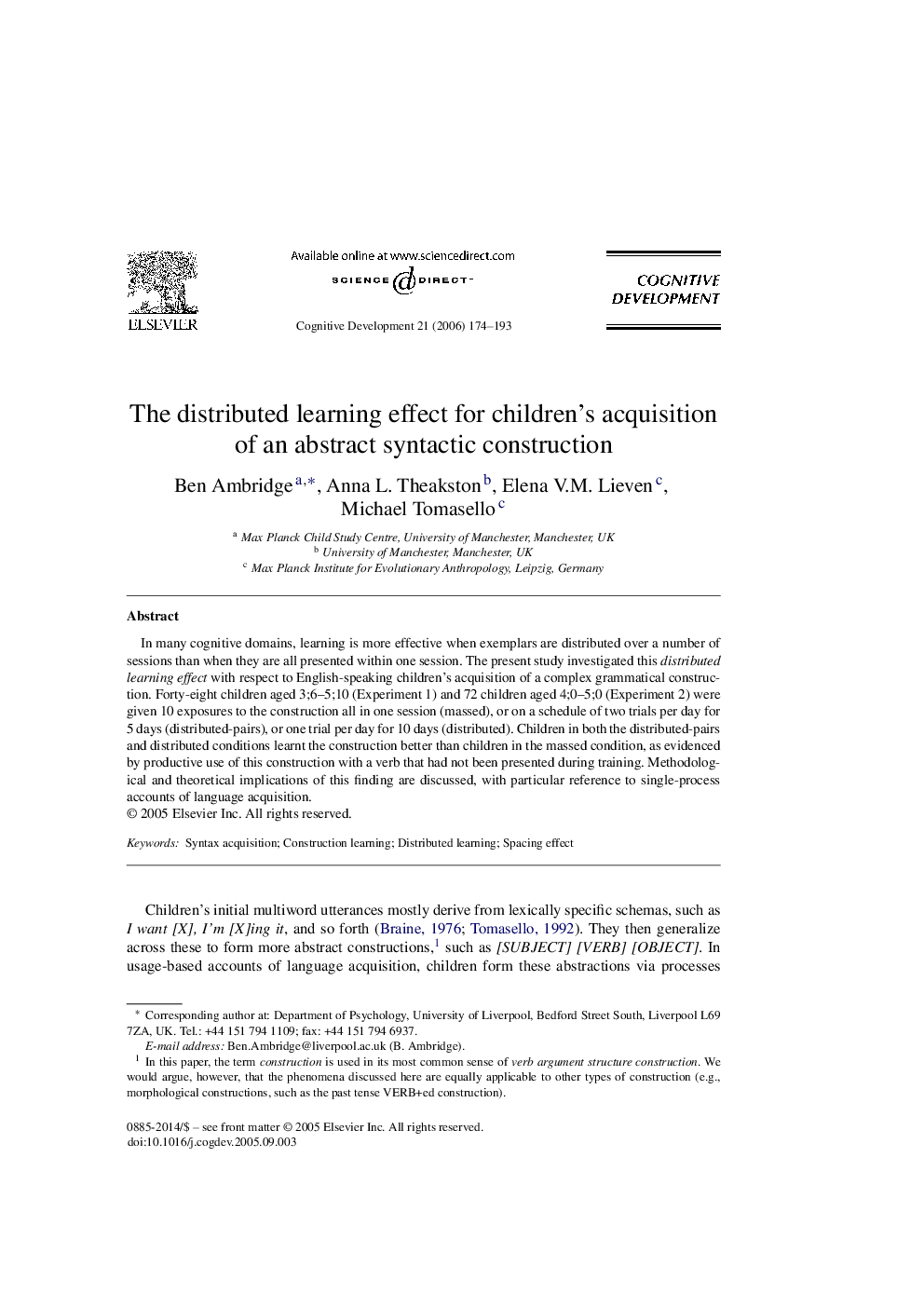| Article ID | Journal | Published Year | Pages | File Type |
|---|---|---|---|---|
| 916689 | Cognitive Development | 2006 | 20 Pages |
In many cognitive domains, learning is more effective when exemplars are distributed over a number of sessions than when they are all presented within one session. The present study investigated this distributed learning effect with respect to English-speaking children's acquisition of a complex grammatical construction. Forty-eight children aged 3;6–5;10 (Experiment 1) and 72 children aged 4;0–5;0 (Experiment 2) were given 10 exposures to the construction all in one session (massed), or on a schedule of two trials per day for 5 days (distributed-pairs), or one trial per day for 10 days (distributed). Children in both the distributed-pairs and distributed conditions learnt the construction better than children in the massed condition, as evidenced by productive use of this construction with a verb that had not been presented during training. Methodological and theoretical implications of this finding are discussed, with particular reference to single-process accounts of language acquisition.
